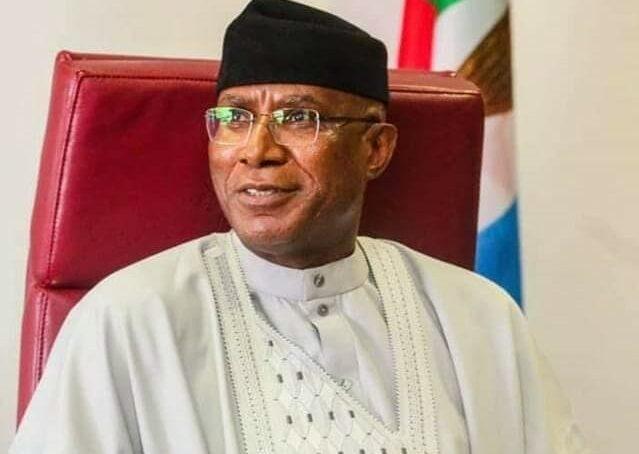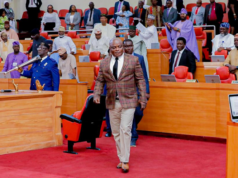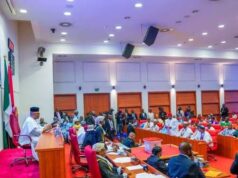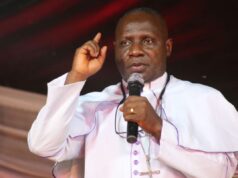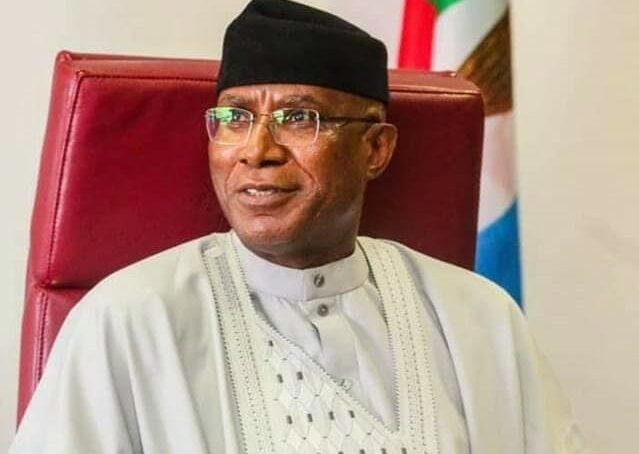
A LOT has been said in the media, especially political platforms on television and in the social media, about the gubernatorial elections in Delta State, which the candidate of the Peoples Democratic Party, the Right Honourable Sheriff Francis Oborevwori, won convincingly, pulling over 360,060 votes to Ovie Omo-Agege, the APC’s candidate’s 240,000. The fireworks have expectedly heightened and the intense battle which engulfed the state during the campaigns, and the elections proper, is set to shift to the courts.
As has become the tradition with our politicians, especially in the South of Nigeria, no politician agrees he or she was fairly beaten, clean and square. That is why, typically, the Deputy Senate President, Ovie Omo-Agege of the APC, who was the main opponent of the PDP in the contest, in refusing to accept defeat and congratulate his rival, has amply served notice that he is heading to the courts to “retrieve” what he claims is his mandate.
Under Nigerian law, and as it has become the norm, the courts have over the years become the final arbiter, whose vote decides who occupies which office and who does not. Sometimes, the court rulings are so outlandish, so stupendously buried in legalese, most people have been left wondering how technicalities supervene and out-do the will of the people. In carrying out their duty, the courts, especially the Supreme Court, have unfortunately acquired an unsavoury reputation in the public eye.
For some of the politicians, it is a case of impunity. They do everything and anything possible to be declared winners. Then they tell their opponents: go to court. For some, it does not matter whether they are declared winner by the Independent National Electoral Commission, INEC, or not. They tell whoever cares to listen that they know their ways around the courts. One of such persons is the current governor of Imo State, Hope Uzodimma, who is called, by his people, the Supreme Court Governor of Imo State. Like him, DSP Omo-Agege, and his followers boast, that no matter what, they can always get the courts to declare the APC candidate winner. They point to the two previous elections which he has won through the courts as evidence. Nevertheless, even as both parties prepare to present their evidence in court, as an active participant, and as most Deltans will testify, there are some cogent reasons, both from what happened on election day and precursors to it, why the candidate of the APC, Omo-Agege, could not have won. Yet he had so many things going for him.
The first of these is the implosion in the rival PDP, the factions which sprouted uncontrollably from the disagreements between the acclaimed leader of the party in the State, Chief James Ibori and Governor Ifeanyi Okowa over who should be the candidate of their party in the March 18 governorship elections. Their divided house became the hunting ground for the APC candidate. The unthinkable happened. An aggrieved Ibori, was said to have sworn that he would not support the Ifeanyi Okowa-supported Sheriff Oborevwori, who emerged the candidate of the party, to become governor of the state.
Expectedly, because of his influence in the party and in the state, a lot of people kow-towed to him. Many who were sitting on the fence claimed they got personal calls or visits from the Odidigborigbo himself to not allow Sheriff Oborevwori become governor of Delta State. A lot of them obeyed and resigned from the party, even at the dying hours, to throw their weight, behind the candidate of the APC who most of them, before now, could not stand, and had no respect or regard for.
The Ovuozorie Macauleys, the Omizu Odebalas and other known heavyweight chieftains of the PDP jumped over the fence and landed on the laps of Ovie Omo-Agege. An impotent feat, it turned out, as most of them lost in their units and wards during the elections. But Ovie had expected to reap much political capital from the problem in the PDP and from the high powered defections. It is either he and Chief Ibori did not study well the political terrain and the impact of the deliberate Okowa political engineering, wrought over the last almost eight years, or they underestimated it and thought overwhelming it would be a walk in the park.
I think they somehow failed to understand what Senator Okowa has done to the PDP in the years of James Ibori’s absence. While the party structure on ground was built around the big party men in each ward and local government when Ibori and Dr Emmanuel Uduaghan held sway, Okowa turned the applecart and devolved power to the units and the wards, built several layers of leadership that are not dependent on any “big politician”. The structure of PDP in the state today is built in the image of Governor Okowa who has control of it. That’s why Ibori’s candidate and others were beaten silly during the primaries.
That explains why those who defected to the APC could not move with the structures in their areas, and could not deliver the vote. Ovie Omo-Agege, like Olorogun Kenneth Gbagi, started this dream run for the governorship of the state early. He had ample strategies which he diligently implemented over the last four years. He appointed a lot of Special Assistants from all the eight local government areas of Delta Central, spreading his tentacles to other parts of the state in a bid to build a formidable groundswell for his ambition.
This was further enhanced when he was able to convince the Buhari government to award the monthly N4.5 billion Pipeline Surveillance Contract to three entities: Tompolo; his own younger brother, Jimmy Omo-Agege; and a company linked to Friday Osanebi; who ended up as his deputy governorship candidate, in their failed bid to be the occupants of Osadebe House, the Delta State Government House. With this, Ovie’s brother, Jimmy, had a lot of “boys” enrolled who got mostly a N60,000 monthly stipend, instead of between N200,000 to N250,000 which Tompolo pays his enrolees. He was seemingly able to build a formidable war chest from this and from the five federal projects he attracted to his Oromuru-Orogun village. He also had some constituency projects in some parts of Delta Central, in what his main opponent, Oborevwori, described as N35,000 solar-powered streetlights which worked only for a time.

